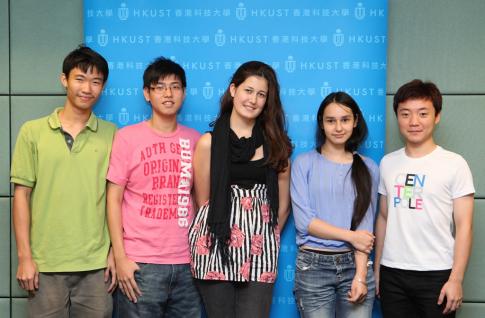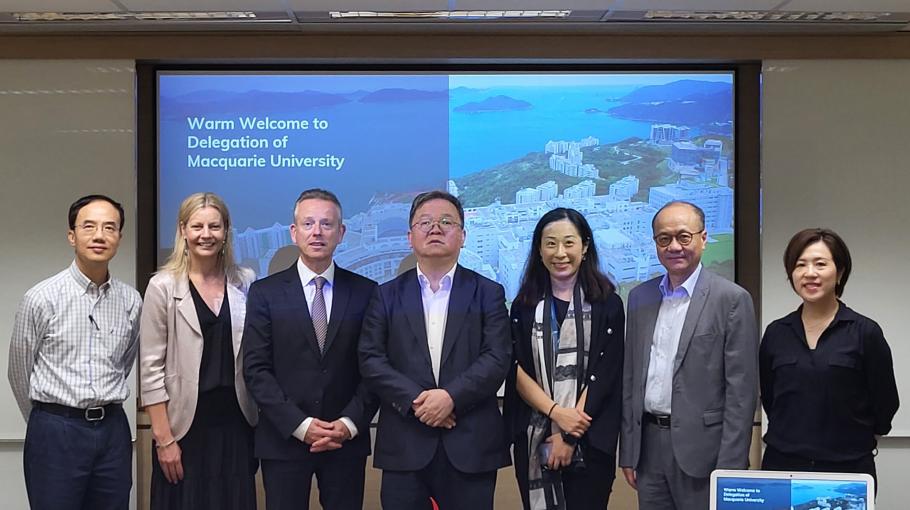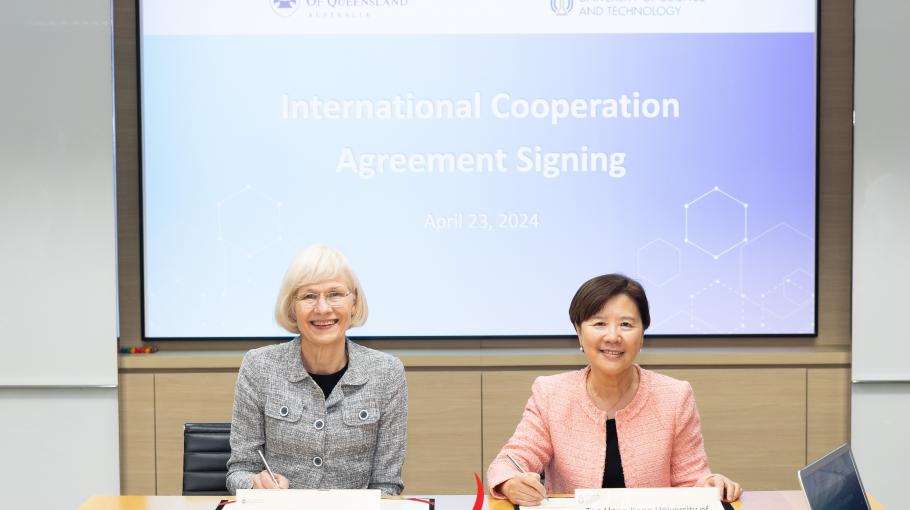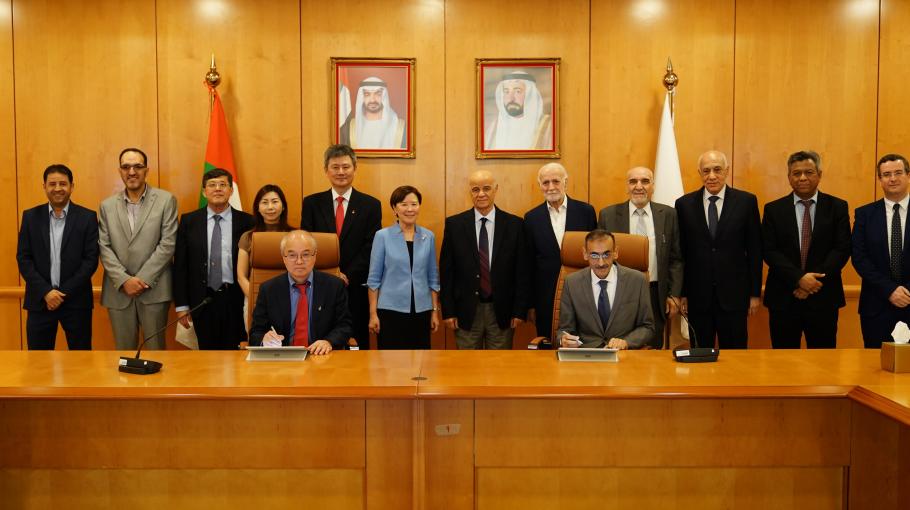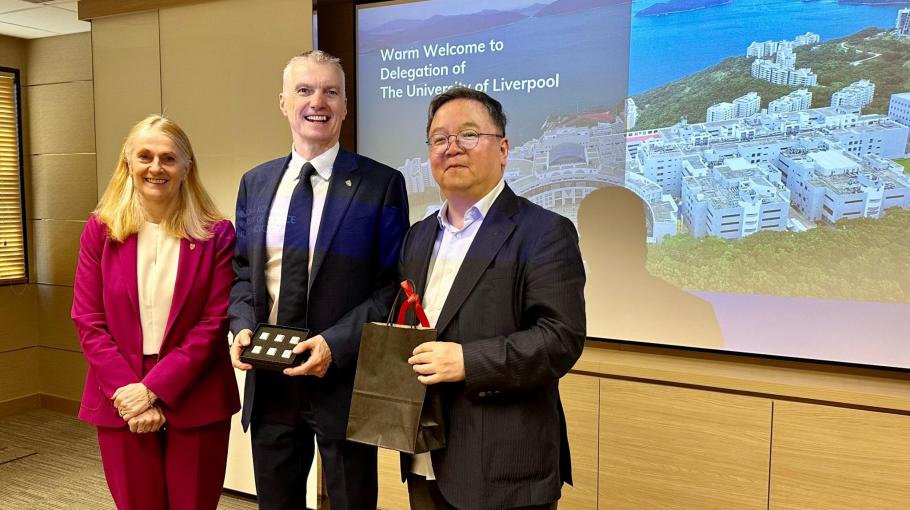The Hong Kong University of Science and Technology (HKUST) boosts the highest percentage of non-local students in its undergraduate intake in academic year 2011/12 among other sister institutions reaching a record high of 18%, up from 16%. HKUST is fast approaching the 20% ceiling set by the Government for the intake of non-local students. Significantly, the University's non-local intake is also spread evenly between Mainland and International students, an almost 50-50 split. Prof Kar-yan Tam, Associate Provost and Dean of Students of HKUST, said that a special taskforce has been formed to forge strategic partnerships with overseas universities to secure more international exchange opportunities and broaden students with a global vision at large. HKUST currently has close to 200 overseas and mainland exchange partners.
HKUST remains committed to be a world-class university putting much internationalization effort. In 2011/12, over 4,500 qualified applicants from the Mainland vied for HKUST's 165 placements. It is noted that the University admitted the top scorer in science in Beijing. HKUST also received 1,200 international applications from 70 countries, up by 64%.
HKUST's international students admitted this year are of 31 different nationalities across America, Europe, Southeast Asia and other regions.Students from Asian countries including India, Indonesia, Malaysia and South Korea contributed the largest share to HKUST's diverse international community. HKUST also recruited students from Cameroon, Ecuador, Finland, Israel, Jamaica, Kuwait, Luxembourg, Russia and Turkey for the first time. HKUST has admitted international undergraduates with 57 different citizenships.
With the increase in international applications and the government's limit on the non-local intake quota, the competition for HKUST's placements was especially intense this year. Setting high admission standard, HKUST admitted approximately 150 top international undergraduates (excluding those from Taiwan, Macau and Mainland China). Of these students, two were the top scorers from Malaysia attaining five straight-As in Malaysia nation-wide university-entrance exam titled Sijil Tinggi Persekolahan Malaysias (STPM). HKUST also admitted seven students from the Korean Minjok Leadership Academy which is one of the best high schools in South Korea. In addition, of the international students admitted on the basis of the IB Diploma, their average score of 37.4 points was well above the world average score of 29.5 points. And of those admitted on the basis of SAT, their average score was 2110 (out of a maximum 2400). These students could easily earn them a place in most of the world's top tier universities. The fact that they have chosen to study at HKUST is an indicator of Hong Kong's strong position as an education destination in Asia and in the world.
On top of public examination results and interview performance, HKUST also pays heed to applicants' expertise in diverse and different fields. Two students from Cambodia and China, who were the Silver and Gold medal winners at the International Physics Olympiad respectively, were admitted this year. These students realize HKUST is fostering innovation with a strong research culture. "HKUST has long been recognised worldwide for its excellence in research and teaching, as well as its high-calibre students with remarkable achievements. With the stronger presence of its students and alumni on the international arena, HKUST is expecting a steady rise in international applications," Prof Kar-yan Tam added.
HKUST is ready to boost its international admissions by hosting an array of recruitment campaigns across 8 countries and 21 cities, such as targeting Vietnam for the first time. The University will hold a number of briefing and information sessions to show the University's strengths and attractiveness. These outreach efforts aim at attracting aspiring and promising young talents to study in Hong Kong and further enriching the University's student mix.
In the light of the four-year curriculum to be implemented in 2012, HKUST has set up a special taskforce to expand and strengthen its networks with overseas universities and institutions. Prof Tam said that the new curriculum would require students to take 120 credits (current one is 90) whereas the major taking up to 40 credits. Students would then have more chances to take part in overseas exchange programs and internships, which in turn enhance their global exposure and materialise the unflinching commitment of HKUST to provide all-rounded education and nurture community leaders for the society.
For media enquiries, please feel free to contact :
Mavis Wong
Tel: 2358 6306
Email: maviswong@ust.hk


